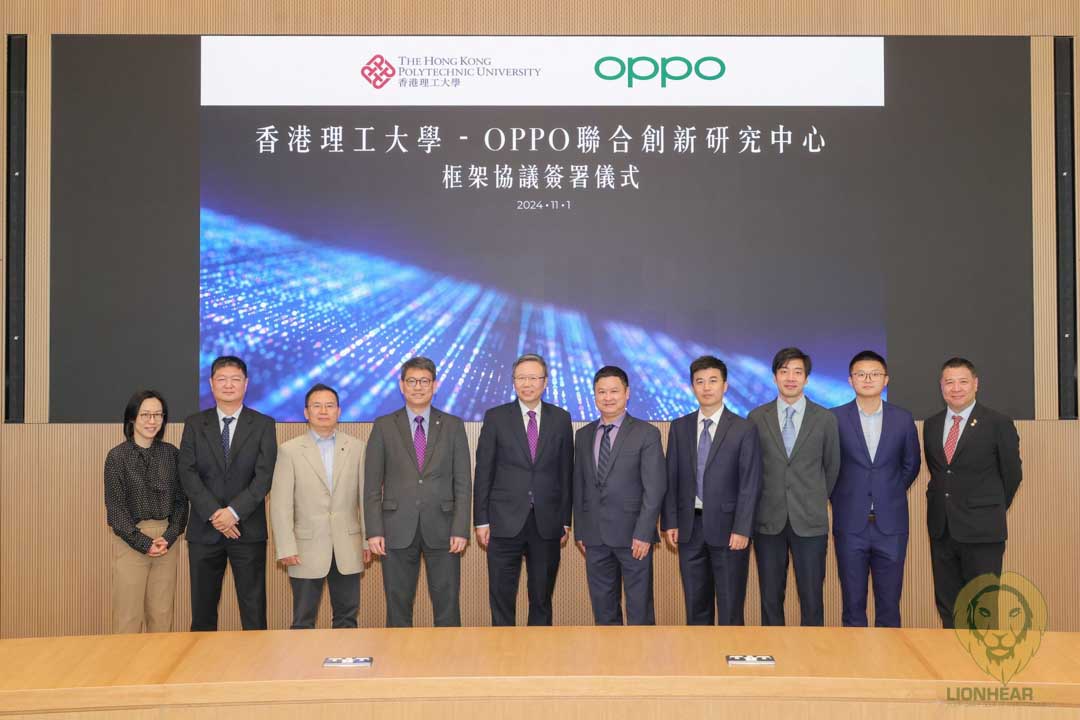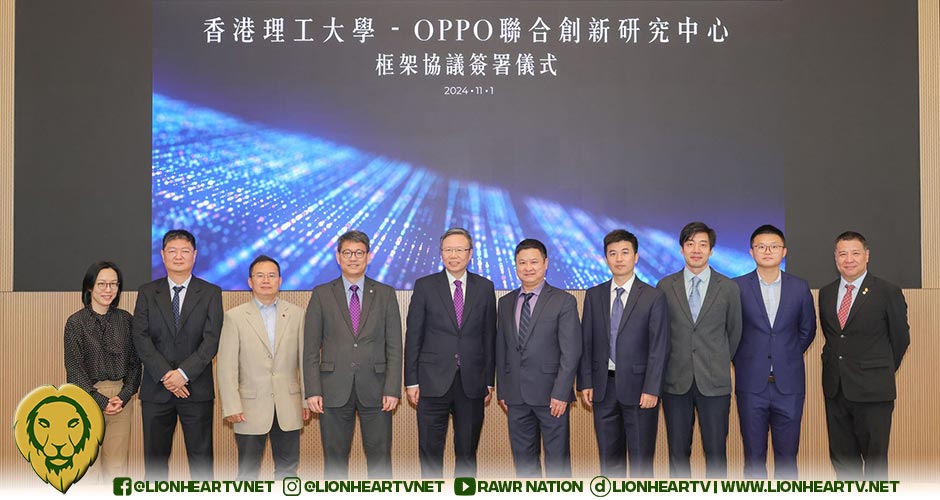Guangdong OPPO Mobile Telecommunications Corp., Ltd. (OPPO) and The Hong Kong Polytechnic University (PolyU) held a signing ceremony to further deepen their collaboration based on the agreement signed in 2022, contributing to the integration of the Guangdong-Hong Kong-Macao Greater Bay Area (GBA).
According to the renewal agreement, OPPO will collaborate with PolyU to increase funding and technology investment, upgrading the “PolyU-OPPO Joint Innovation Research Centre”, which marks a new chapter in the comprehensive partnership in AI imaging technology.
The signing ceremony took place last Friday (1 November) at the PolyU campus, witnessed by Prof. Jin-Guang TENG, President of PolyU and Mr Jason LIAO, President of OPPO Research Institute. The agreement was signed by Prof. Christopher CHAO, Vice President (Research and Innovation) of PolyU and Mr Zheng QIN, Head of Industry-Academia Affairs of OPPO. Under the framework of the agreement, the “PolyU-OPPO Joint Innovation Lab” will be upgraded to the “Joint Innovation Research Centre.” Additionally, OPPO will provide no less than RMB 30 million over the next five years to expand the scale of co-trained PhD and postdoctoral researchers, promoting technical development and exploration in imaging algorithms while further deepening the collaborative efforts between OPPO and PolyU in AI imaging technology.
“In the three years of collaboration between OPPO and PolyU, we have witnessed significant technological breakthroughs and notable achievements in talent cultivation through the Joint Lab,” said Jason LIAO. “Adhering to our mission of ‘Technology for Mankind, Kindness for the World’, OPPO is dedicated to deepening the integration of academia-industry cooperation in the field of AI through this renewal, bringing more innovative intelligent imaging experiences to global users.”
Prof. TENG remarked, “To address the opportunities and challenges of the AI era, PolyU will officially establish the Faculty of Computer and Mathematical Sciences in January 2025. This is an important move to implement the University’s innovation development strategy, aiming to meet growing technological needs and support talent nurturing. The Department of Computing, which houses the Joint Innovation Research Centre will also join the new faculty. The new structure will effectively promote in-depth exchanges and collaboration among research teams, and create more impactful outcomes. We believe that this in-depth cooperation with OPPO will enable us to fully seize opportunities and actively promote technological innovation and knowledge transfer.”
In 2022, to promote in-depth cooperation in GBA, OPPO and PolyU signed an agreement to establish the “PolyU-OPPO Joint Innovation Lab.” Within just three years, the Joint Lab has achieved a series of innovative milestones, successfully developing and implementing various leading imaging algorithms: the AI super-resolution technology has been applied to multiple OPPO products, significantly enhancing the image quality of telephoto photography; the deployment of HDR imaging algorithms enables users to capture high-quality photos under different lighting conditions, greatly enhancing the photography experience.
Furthermore, the Joint Lab has actively explored cutting-edge technologies, including image restoration and detail enhancement based on generative models, as well as interactive image and video editing technologies. These efforts have improved the quality and stability of image generation and provide more possibilities for image and video post-processing. Additionally, the Joint Lab has made significant strides in talent cultivation, nurturing several PhD and postdoctoral researchers who are actively contributing to OPPO’s AI imaging technology, providing a strong driving force for continuous technological innovation.
The evolving collaboration between OPPO and PolyU will propel the further development of AI imaging technology, providing new momentum for technological innovation and talent development in the GBA. Looking ahead, both parties will continue to strengthen the academia-industry cooperation, fully exploring and promoting innovative applications of AI imaging technology.


